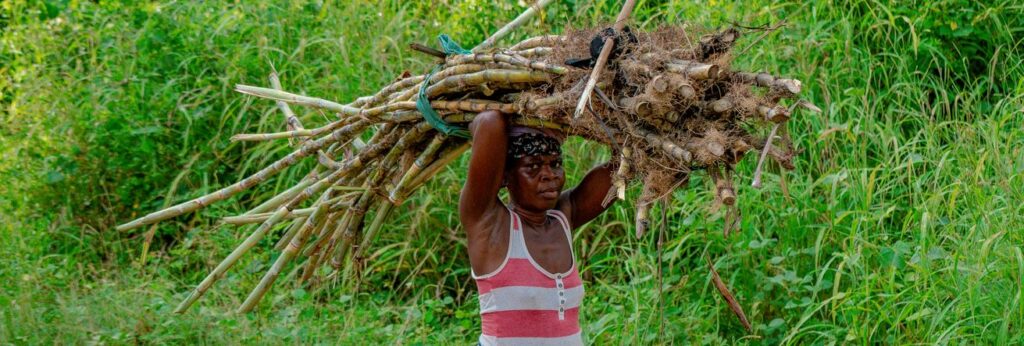Benin – For those who have no other fuel than wood, there is not much choice but to cut down trees. But you can make sure that you use that wood as efficiently as possible.
In the valley of the Wémé, in the south of Benin, more than 80% of the population gets its energy for heating and cooking from wood. Other forms of energy remain virtually absent for rural residents or simply inaccessible because of the high costs involved. In addition, some population groups occasionally (semi-professionally0 spend a lot of time on charcoal production, in order to earn an extra income, in addition to their agricultural activities.
But as things stand now, the process of making charcoal produces relatively little charcoal, and also offers relatively little yield and is of poor quality. The charcoal producers also lose a lot of time, because they use freshly cut green wood, which makes the production process longer, and the loss of wood is enormous.
It is high time to start managing the wood reserves more rationally: the demand for charcoal is still rising, resulting in further deforestation, which contributes to global warming.
That is why Join For Water took the initiative in the Wémé Valley to provide a training course on more efficient charcoal production. The intention is to offer ore protection to the forest resources in the valley, so the population can continue to enjoy this ecosystem.
30 people, 19 men and 11 women, from 2 municipalities (Dangbo and Adjohoun) have already received training. First, they gained more theoretical knowledge about building the woodpile and about the materials. The woodpile is made using a technique from the Senegalese region, the Casamance. More practically, the charcoal makers also learn to measure the moisture content of the wood, how best to collect and stack wood, how to close the pile with sod, how to fix ventilation pipes, set the pile on fire and finally put it out. After all this, the pile has to cool, and the resulting charcoal can be put into bags.

